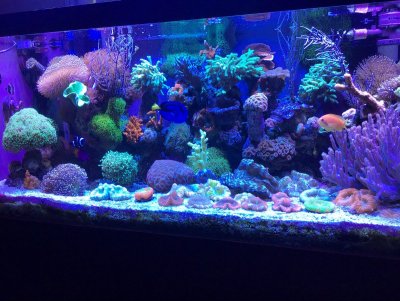- Joined
- Jan 12, 2020
- Messages
- 102
- Reaction score
- 28
My tank has been up for about six months now and since day one the phosphates have been high. I am using RODI water which is consistently testing at 0 TDS. I have about 15 fish and a bunch of softies in a 90 gallon tank. I feed them one cube of mysis shrink in the evening and pellets in the morning so I don't think I am overfeeding.
To correct the Phosphates I have been running GFO in a reactor which gets them down to about .06, but I am having to change the GFO media often (like every 2-3 weeks). What else can introduce phosphates into the aquarium? I am stumped.... I also have a refugium which is working well and keeping the nitrates below 3ppm.
Any thoughts?
To correct the Phosphates I have been running GFO in a reactor which gets them down to about .06, but I am having to change the GFO media often (like every 2-3 weeks). What else can introduce phosphates into the aquarium? I am stumped.... I also have a refugium which is working well and keeping the nitrates below 3ppm.
Any thoughts?



















